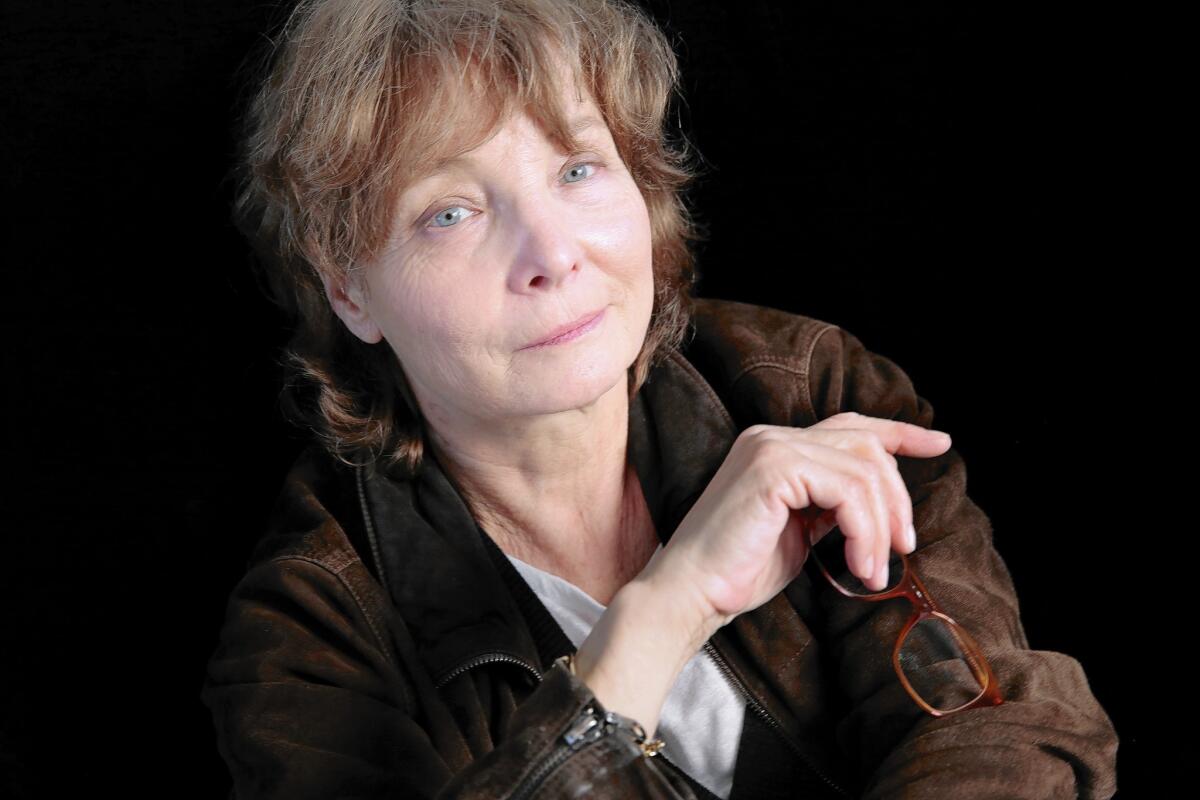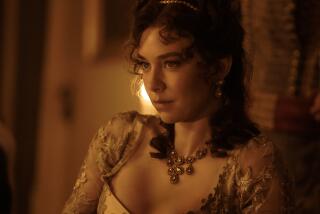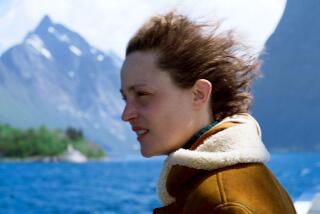Parents’ turbulent marriage re-imagined in ‘For a Woman’

- Share via
French director Diane Kurys has explored her unhappy childhood and her parents’ divorce in several films, most notably her first feature, “Peppermint Soda,” in 1977, about her relationship with a sister, and the Oscar-nominated “Entre Nous” in 1983, starring Isabelle Huppert as her unhappily married mother.
Now, Kurys has re-imagined the early years of her parents’ turbulent marriage in “For a Woman,” which opens Friday.
“It was sort of cathartic to do this last movie,” Kurys, 65, said over the phone from New York City.
“For a Woman” revolves around Kurys’ alter-ego, a writer named Anne (Sylvie Testud), coming across her late mother’s old photos and letters in a drawer. Because Anne and her older sister (Julie Ferrier) know so little about their family’s past, Anne decides to research her parents’ early life in Lyon, France.
Flashback to 1947: Anne’s parents, Michel (Benoît Magimel) and Léna (Mélanie Thierry), who met in a concentration camp during World War II, are relatively happy as they settle into their new lives. Michel, who saved Léna from certain death in the camp, is an ardent communist. The much younger Léna isn’t interested in politics and is more content being a mother to her young daughter.
Their lives are turned upside down when Jean (Nicolas Duvauchelle), Michel’s young, handsome and mysterious brother, arrives. Soon, he and Léna are having an affair.
“Of course, I made this up, because I was not born,” said Kurys. “You imagine your parents when they were young and before you were born. Nobody told me this story. I invented the story.”
But there may be more truth than imagination in “For a Woman.”
In the film, Anne finds a photo of her mother, older sister and Jean dated 1947. Because she was born the year after the photo was taken, Anne begins to believe that Jean may be her father.
Kurys had the same thoughts when she discovered a photograph of her mother, older sister and an uncle whom the family rarely talked about.
“We knew that I had an uncle who was in the Red Army and came to live with my parents in Lyon and stayed at their apartment for more than a year,” Kurys said. “I was born right after that. The family had vaguely said that the brothers fought because she [Kurys’ mother] had an affair with him. When I saw the date [on the photo], I said, ‘Wow, if they had an affair, maybe I am a product of that.’”
That question, Kurys said, “helped me to make the film.”
Her parents were married for 10 years. “They were very strong people,” Kurys said. “My mother was not weak at all. I think he kind of liked that, in a way. They were very different, and their marriage couldn’t really last. I don’t think they ever recovered.”
However, they did enjoy the films Kurys made that were inspired by their lives: “My mother saw ‘Entre Nous.’ She was ill and died two months later. I think she was very moved. She hugged me.”
“Entre Nous” was dedicated to her mother, but she made “For a Woman” to understand her father.
Before her mother died, she revealed to Kurys, “You think your father loves you, but I am going to tell you the truth. Your father didn’t look at you or didn’t touch you until you were 3 or 4.”
Kurys was so upset about the revelation that she put it out of her mind until she was making the movie and coming to the realization that her father might have been distant because he doubted she was his child.
They finally bonded when she was older and they were both living in Paris.
“I would go to his house twice a week,” Kurys said. “He was cooking for me and we had endless conversations about communism.”
More to Read
Only good movies
Get the Indie Focus newsletter, Mark Olsen's weekly guide to the world of cinema.
You may occasionally receive promotional content from the Los Angeles Times.








